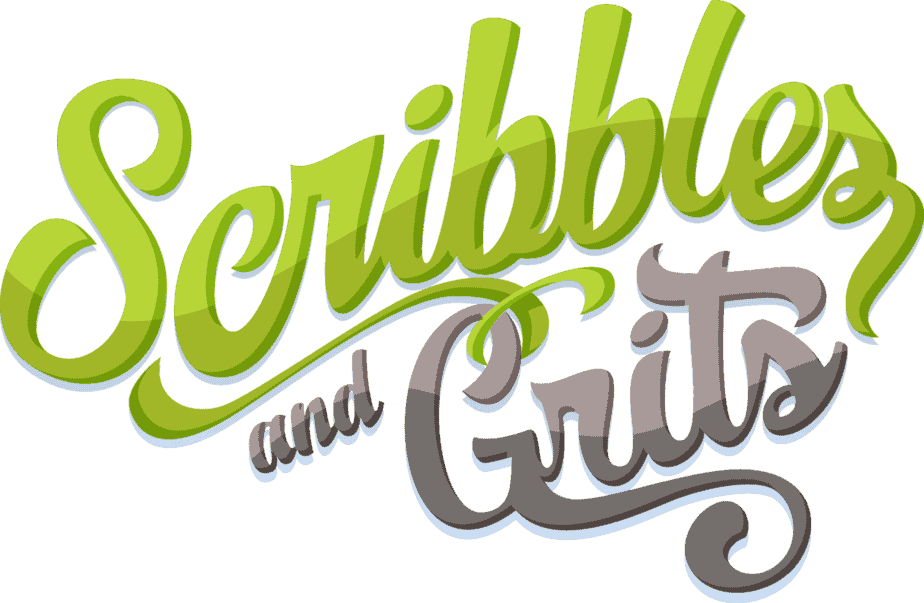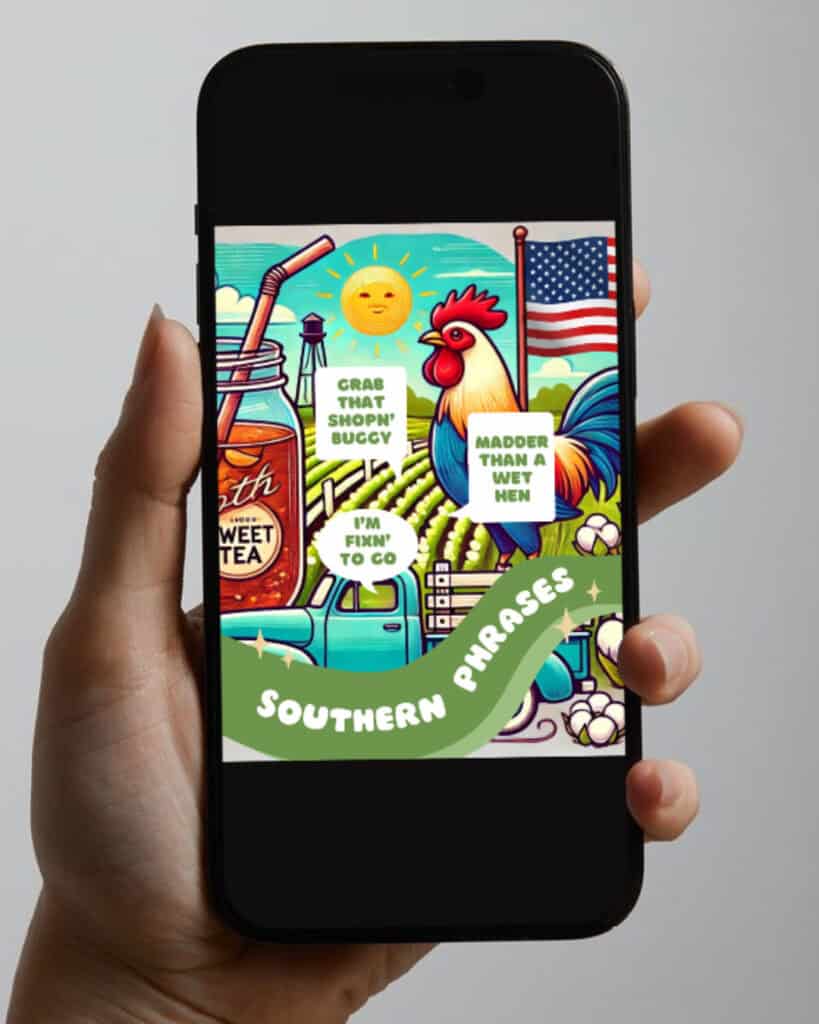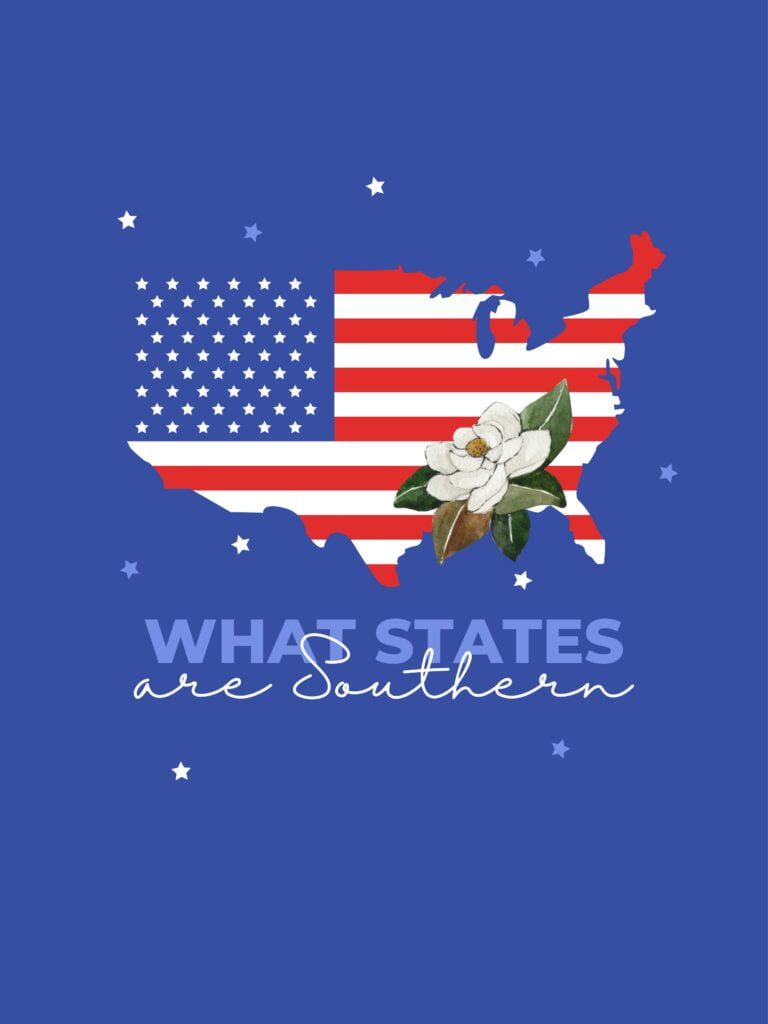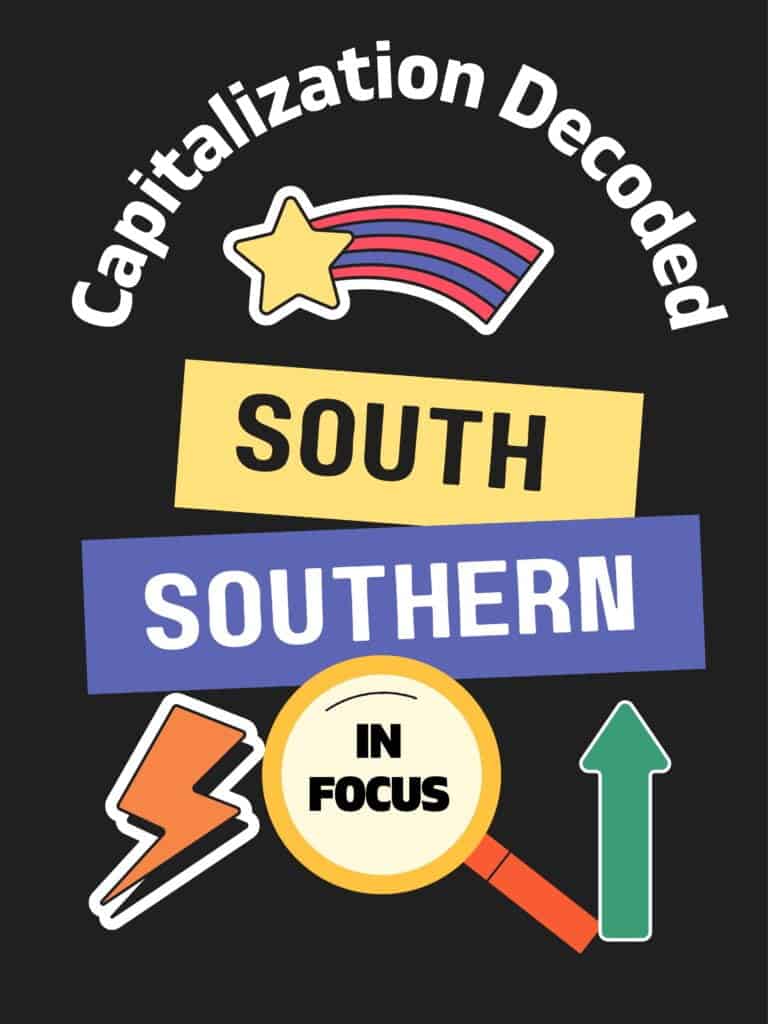From Fields to Phrases: How Farming Shaped Southern Sayings
Did you know some old sayings from the Southern U.S. have roots over 300 years old?
This shows how deeply farming and language are linked in the South. Exploring the Southern dialect, you find a mix of expressions showing its rich cultural history, and exactly how farming shaped Southern sayings.
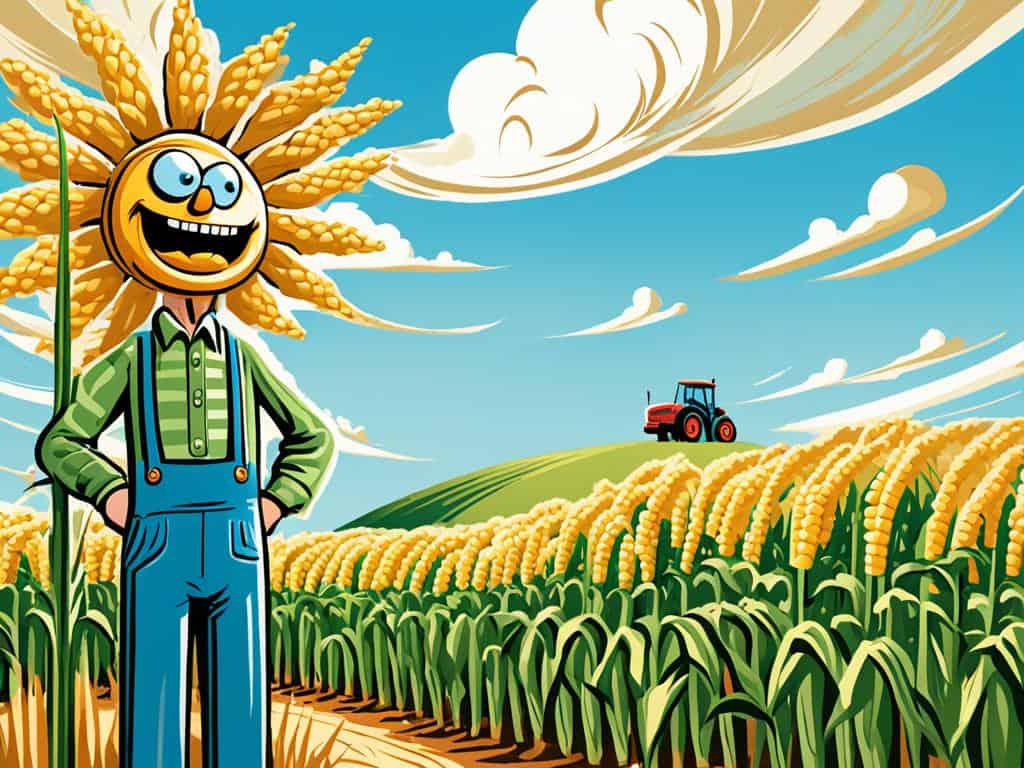
The South is a goldmine of words, thanks to its farming past. Phrases like “y’all” and “fixin’ to” tell tales of country life and Southern values.
Farming rhythms, animal wisdom, and crop surprises formed Southern speech. Let’s discover the fields’ sayings and how they grow our language’s cultural garden today.
The Rich Soil of Southern Language
The Southern way of speaking comes from farm life. This makes their words and phrases special. Each time I learn more, I see how folks in the country keep their language strong.
Agricultural Life’s Influence on Southern Dialect
Farm life shaped how Southerners talked. The way they speak, like in country music and at NASCAR, is getting more popular. There are now over 100 million Southerners. This way of talking has spread because of the area’s changes, especially after World War II.
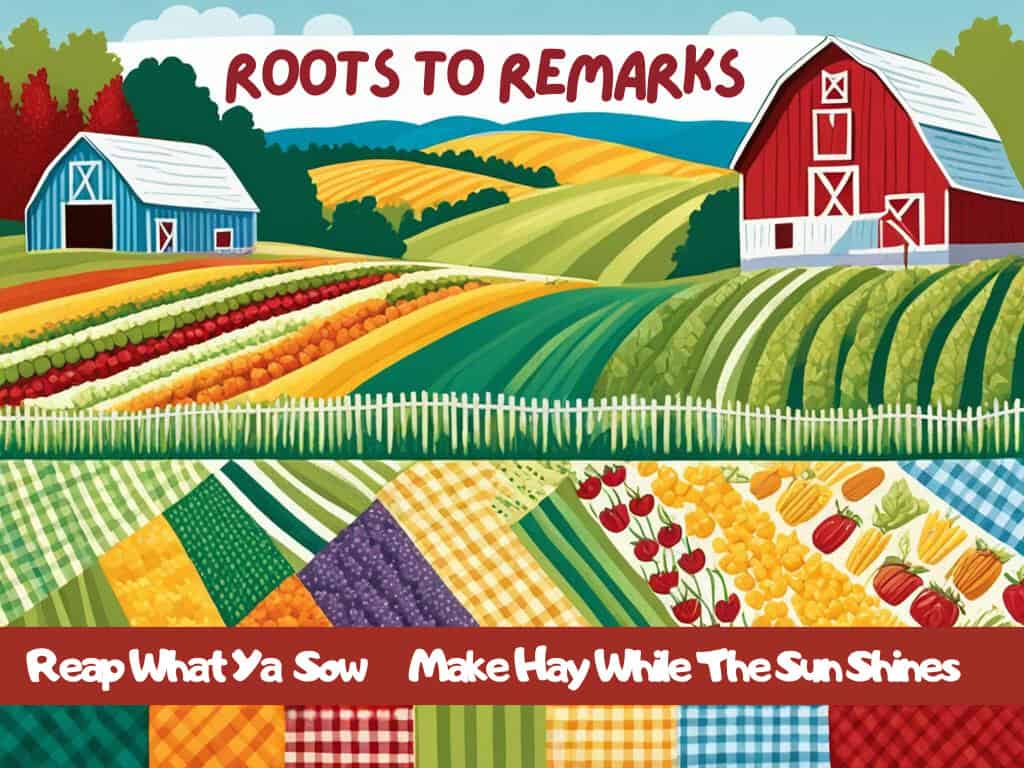
Farming Traditions and Unique Expressions
From farming, the South got its own set of sayings. These talks often mention plants, animals, and weather from the farm. Times like the 1930s drought brought out strong and funny sayings.
Rural Communities: Guardians of Linguistic Heritage
Small towns are key to keeping the South’s language alive. Even with TV and radio in the 1930s, the South stayed different in how they talk. The words they use tell the story of different people, from rich landowners with high hopes.
This special way of talking is a mix of farm life and country living. It shows the deep connection between the South’s language and agriculture.
Farming Shaped Southern Sayings: A Cultural Harvest
I’ve always found southern sayings interesting. They often talk about farming and life in the country. These sayings show how deeply the South values its connection to the land.
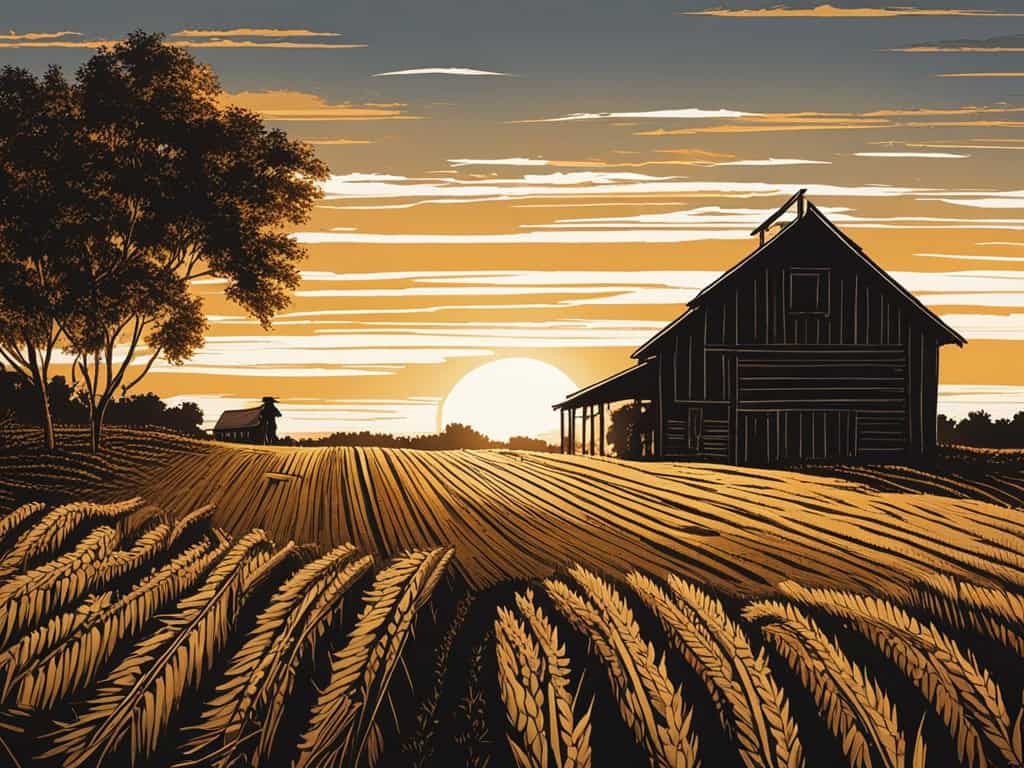
The sayings of the South show us a special way of speaking. They are born from hard work in fields and pastures. This makes them colorful parts of Southern life and culture.
“If the creek don’t rise” is one such saying. It is used in the South to wish for the best outcome. Many expressions like this come from rural places
“All hat, no cattle” – a Texas insult for someone who talks big but lacks substance.
Tobacco harvest happened in late summer or early fall. It was not just about work; it was a time for community. Neighbors helped each other and talked, showing southern kindness.
Phrases like “ballpark figure” and “jump on the bandwagon” also have rural beginnings. They show how people estimated crowds and how musicians traveled to shows. This is the root of such sayings.
These southern sayings keep the humor and wisdom of the past alive. They link our words to our way of life, showing our connection to the land. This is how they make a time capsule of language.
Want More Southern Sayings?
Check out my fun-packed article “20 Categories of Southern American Phrases: 201 Sayings Y’all Need to Know!” for a rollercoaster ride through the South’s most colorful expressions!
Animal-Inspired Idioms: From Barnyard to Everyday Speech
The South’s language is full of animal idioms, making talks colorful. These sayings come from the farm life, showing southern wit.
Madder than a Wet Hen
“Madder than a wet hen” was common where I grew up. It means very angry. Long ago, people would dunk hens in water to get them off their nests. Those hens were not pleased.
Stubborn as a Mule
Southerners say someone is “stubborn as a mule” when they won’t move. This fits well since mules are known to act that way. Mules won’t go unless they choose.
Happy as a Dead Pig in Sunshine
The saying “happy as a dead pig in sunshine” is dark humor. It means being happy without knowing a bad situation. It talks about how the sun makes a dead pig’s skin tighten, looking like a smile.
| Idiom | Meaning | Origin |
|---|---|---|
| Madder than a wet hen | Extremely angry | Farming practice |
| Stubborn as a mule | Very obstinate | Mule behavior |
| Happy as a dead pig in sunshine | Blissfully ignorant | Post-mortem pig appearance |
These idioms are just part of the South’s lively talk. They come from farm life, making our language richer and funny.
Crop Talk: How Produce Influenced Southern Vocabulary
The Southern United States is known for its unique culture. Agriculture has played a big part in making its customs, language, and food. This link between farming and talk has led to a wide range of colorful phrases and sayings in the South.
Long ago, cotton was the top crop in the South. In 1793, South Carolina only made five million pounds of cotton. But by 1860, the South made two billion pounds, more than half of what the U.S. sold outside America.
From this growth came sayings like “living in high cotton,” meaning you had lots of good luck and wealth.
There were many kinds of farm produce and each added its touch to how the South talks. For example, “a mess of” was used to show there was a lot of something, like “a mess of collards.”
This shows how good the South was at growing, since by 1835, five states had together sold over 500 million pounds of cotton to the world.
Southern farmers also used sayings that described things in a fun way. “Finer than frog hair split four ways” means something is very delicate or exact. These phrases show how smart and imaginative Southern farmers were in talking about their lives.
| Year | Cotton Production (lbs) | % of U.S. Exports |
|---|---|---|
| 1793 | 5 million | N/A |
| 1835 | 500 million | 55% |
| 1860 | 2 billion | 60% |
When the Civil War started, the South was making 75% of the world’s cotton, showing how powerful it was in this trade. This not only helped the South’s economy but also became a big part of its language. Farming phrases added a lot of color to how people talked then and still do today.
Weather and Seasons in Southern Expressions
Weather is very important in the South. It changes how we talk and plan. Our common sayings mix hope with caution, showing our strong connection to nature.
Fair to Middlin’: Beyond the Fields
“Fair to middlin'” means things are not bad but not perfect. It’s used beyond farming, showing how agriculture mixes with daily conversations.
Southern Planning: Hope and Caution
A Southerner planning might say, “If the Good Lord’s willing and the creek don’t rise.” This mixes faith with worries about floods. It respects nature’s surprises.
We listen closely to weather signs. For example, “Red sky at morning, sailor take warning,” influences how we plan our farming.
Then, “If it rains before seven, it will clear before eleven,” helps with outdoor tasks.
Harvest Time and Southern Phrases
Harvest seasons inspire our ways of talking about time. “Fixin’ to” means getting ready, showing farming’s impact on our language. And, “It’ll eat” is used when food is good enough, especially during busy times.
| Southern Saying | Meaning | Context |
|---|---|---|
| Fair to middlin’ | Average or satisfactory | General conditions |
| If the Good Lord’s willing and the creek don’t rise | Hopeful but cautious planning | Future events |
| Fixin’ to | Getting ready to do something | Upcoming actions |
© Scribbles and Grits
These phrases connect us deeply to farming’s wisdom. They carry the knowledge of many generations of country people, who lived by watching the weather and seasons.
From Chores to Chitchat: Daily Farm Life in Southern Sayings
Southern life is full of farm work and chatting. This mix creates special phrases we use. These sayings show how closely we work and talk in the South.
The Versatile “Fixin’ to”
In the South, getting ready to do something, or “fixin’ to”, is common. It’s like the cotton in our fields. This phrase tells others we’re about to do a task. Whether it’s chicken feeding or a trip to town, it’s part of our dialect influenced by farming traditions.
Kitchen Tasks and Surprise
Expressions in our kitchens are fun. An example is “Butter my biscuit!” for a surprise. These southern phrases have warmth. They mix farming history with hospitality’s heart.
Porch Sitting: The Heart of Southern Communication
Porch sitting is huge for us. It’s where we share stories and wisdom after work. We talk about all kinds of things, from crops to local legends like Cooter Brown.
This keeps our special southern sayings going from one generation to the next. “Bless your heart,” a colloquial phrase that probably doesn’t make sense to the rest of America, often comes up during these chats.
Our farm life and talking are as diverse as our crops. Sayings like “fixin’ to” and “butter my biscuit” show the South’s spirit.
They link us to our farming past and make our talks lively today. It’s a colloquial perversion of “cater-corner” that only a true southerner might say.
My Final Thoughts
Thinking about southern sayings shows me their strong ties to farming life. These sayings live on, showing the deep link to the countryside.
They talk about life on the farm in a unique way. From “don’t make a mountain out of a molehill” to “hog wild,” these phrases have changed over time just like the South.
But, they hang on, proving language can keep culture true. They are more than words. They are part of what makes the South special today.
Southern sayings help pass down wisdom from farming days. They keep Southern culture alive in a special way. When we say them, we celebrate our past and keep our unique language alive for tomorrow.
Terms like “cotton has long roots” and “pig in a poke” describe someone or something deeply rooted in our heritage. Even those below the Mason-Dixon Line know these sayings, and they continue to tell the truth about our way of life.
These phrases, from “horse runs fast” to “stop at nothing to incubate,” carry the spirit of the South and keep our unique language alive for future generations.
Scribble of the Day: Southern Farming Quote
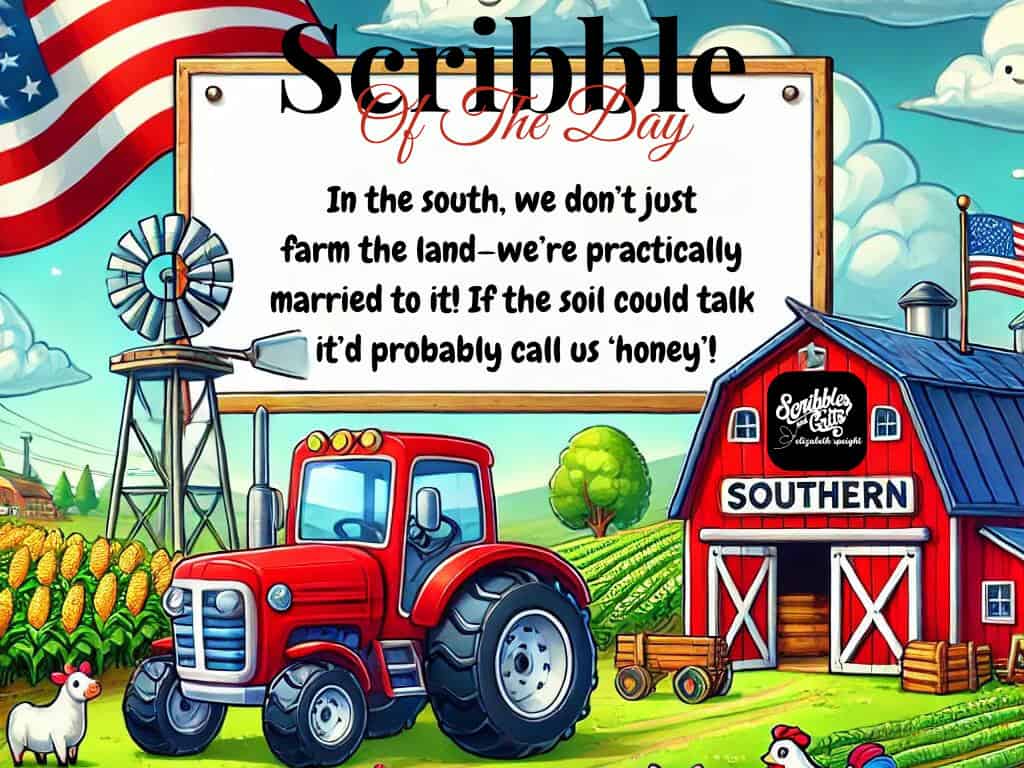
Which Southern Saying is your favorite from this article? I would love to know!
